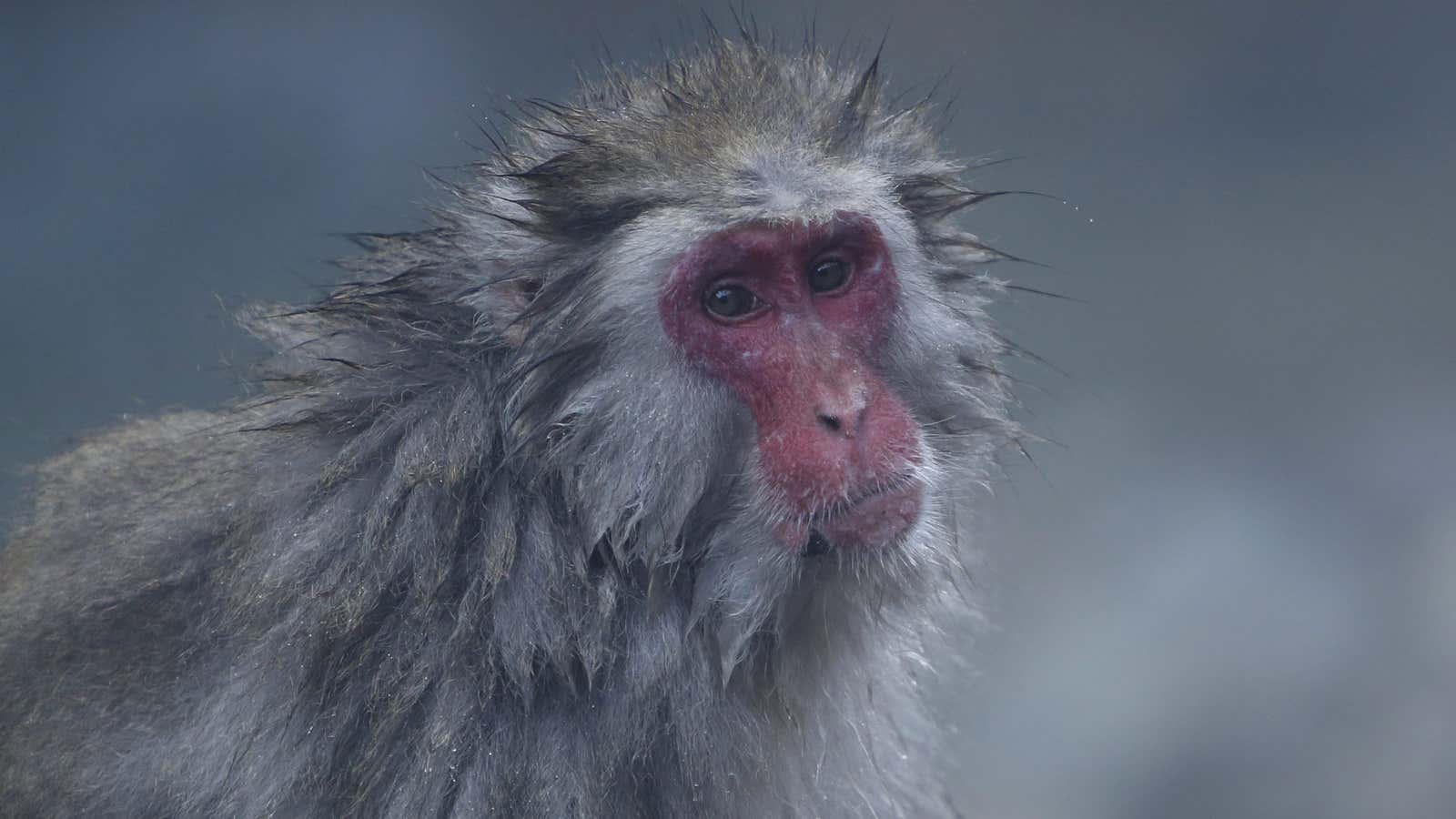If you grew up in America, there’s a good chance that you learned that sex is, first and foremost, a reproductive act. Sure, it feels good, but that’s just a way for our bodies to trick us into breeding. Many church doctrines will inform you that any sexual experience that doesn’t stand a chance of resulting in pregnancy is sinful, perverse, and unnatural.
But someone might want to tell that to nature.
A recently released study documented multiple instances of adolescent female macaques in Japan having “sexual interactions” with sika deer – or, not to put too fine a point on it, macaques humping the backs of deer like a pre-teen girl with a pillow. Researchers are still trying to figure out why the monkeys are doing this, as NPR explains: “It might be a way for a less-mature monkey to practice for future sex with other monkeys,” or an option for a monkey that doesn’t have any other sexual partners at the moment. It’s also possible that the monkeys, which hitch rides on deer for non-sexual reasons, too, simply discovered by accident that grinding on the deers’ backs felt good.
The discovery has prompted a lot of marveling from the media. But if you’re surprised to learn that animals like to pleasure themselves, you’re not paying attention. There are numerous documented instances of animal masturbation, a habit enjoyed by primates as well as creatures including dolphins, elephants, penguins, and bats. (Although the role of the sika deer adds a layer of complexity: Can a deer consent to interspecies frottage? “Most deer were nonchalant, continuing to eat or stand passively during the thrusting,” Quartz observes.)
It’s impossible for us to know exactly what the deer think about all this. That matter aside, there are a lot of animals out there who are, if you will, spanking the monkey. So if macaques do it, dolphins do it, birds and probably even bees do it, why do humans still have so much difficulty talking about sexual pleasure?
Even those of us who’ve gotten past the idea that sex outside the bonds of heterosexual marriage is a one-way ticket to hell still have difficulty talking about pleasure. Sex education curricula rarely venture beyond discussions of condoms, birth control, and puberty (if they even cover condoms and birth control); for many of us, the idea of discussing masturbation seems particularly prurient and unseemly. It’s been twenty-three years since Jocelyn Elders was forced to resign from the post of surgeon general in the US after daring to suggest that young people be taught to think of masturbation as a form of safer sex. And in spite of all the progress we’ve made since the early 1990s, it’s still hard to imagine a government official coming out in favor of masturbation. (Not that I necessarily want to hear a member of the Trump Administration talking about double-clicking the mouse.)
Our reticence on the subject of masturbation is particularly damaging for women. Copious amounts of ink have been spilled about the gender orgasm gap, with lots of hand-wringing about how straight men are letting their female partners down in bed. But it’s not just straight male selfishness that fuels the orgasm gap. One of the main reasons why women are less likely to find pleasure in bed is that we rarely discuss the tools to access our own pleasure, or even an understanding that pleasure can, and should, be a primary goal in our sex lives.
When sexual pleasure is discussed, it’s almost always from a straight male perspective, rationalized as an added bit of biological incentive intended to encourage men to spread their seed. As Peggy Orenstein writes in her recent book Girls & Sex, American culture teaches girls that men pursue sex and pleasure, while women passively provide it. “When girls go into puberty education classes, they learn that boys have erections and ejaculations and girls have periods and unwanted pregnancies,” Orenstein told Quartz in 2016. And when women do experience orgasms, it’s frequently positioned as the result of a partner’s skill, rather than something we’re naturally wired to actively pursue, all by ourselves, for our own selfish reasons.
These macaques throw all of these assumptions into disarray. Not only are they animals getting off just for fun, they’re female animals going to unusual lengths in pursuit of their own sexual pleasure. What we should take away from this is that sexual pleasure isn’t an also-ran to reproduction; it’s an essential part of many animals’ life experiences—regardless of our species, sex, or gender.
So instead of getting Puritanical on the macaques, let’s use them as a jumping-off point for discussions about just how natural it is to pursue sexual pleasure. Whether we’re monkeys or men—or women!—we’re all wired to seek out sensations that feel good.
